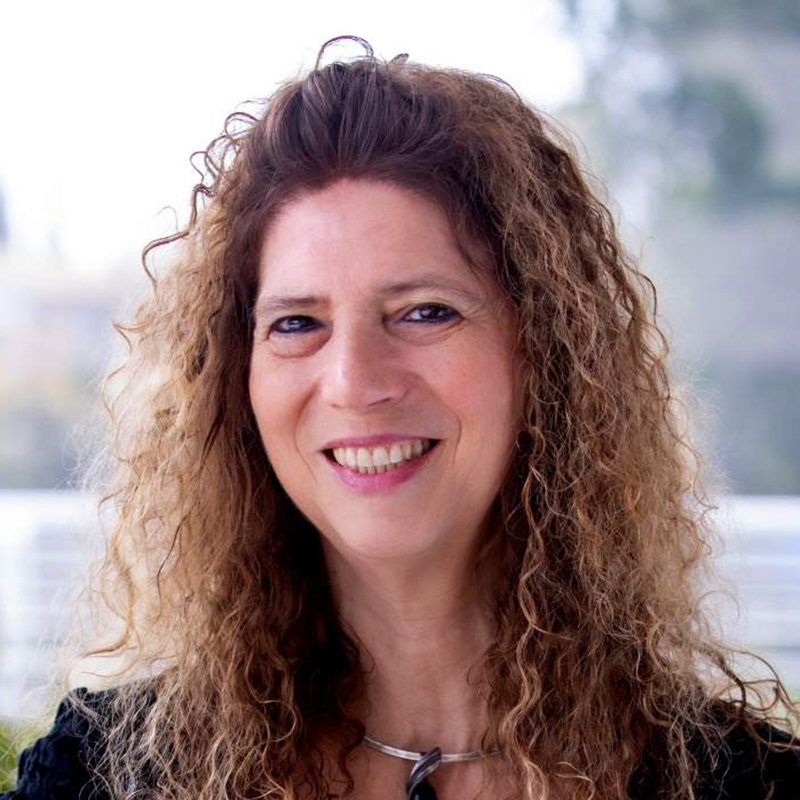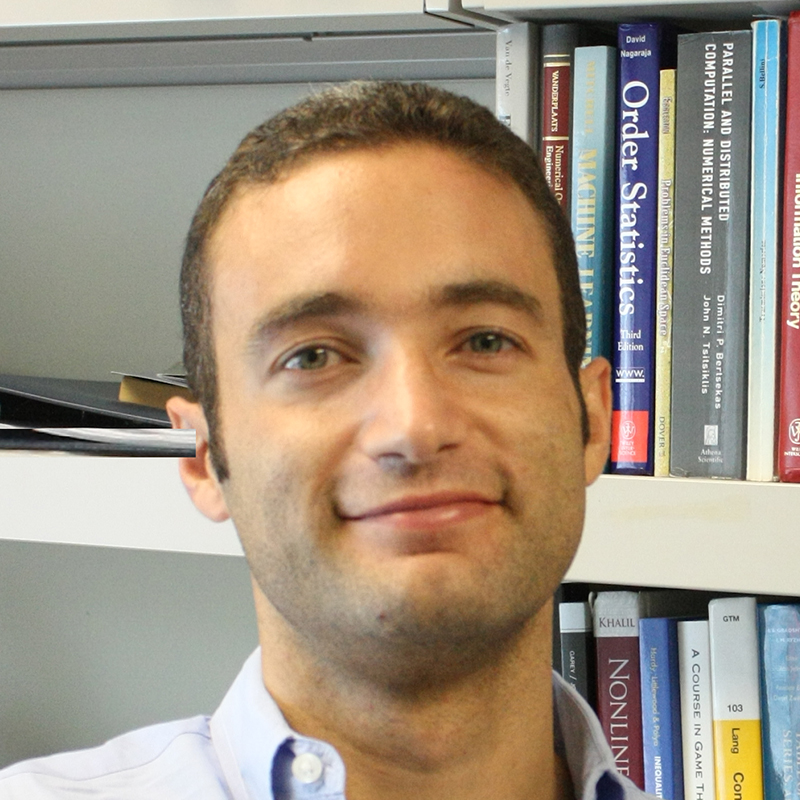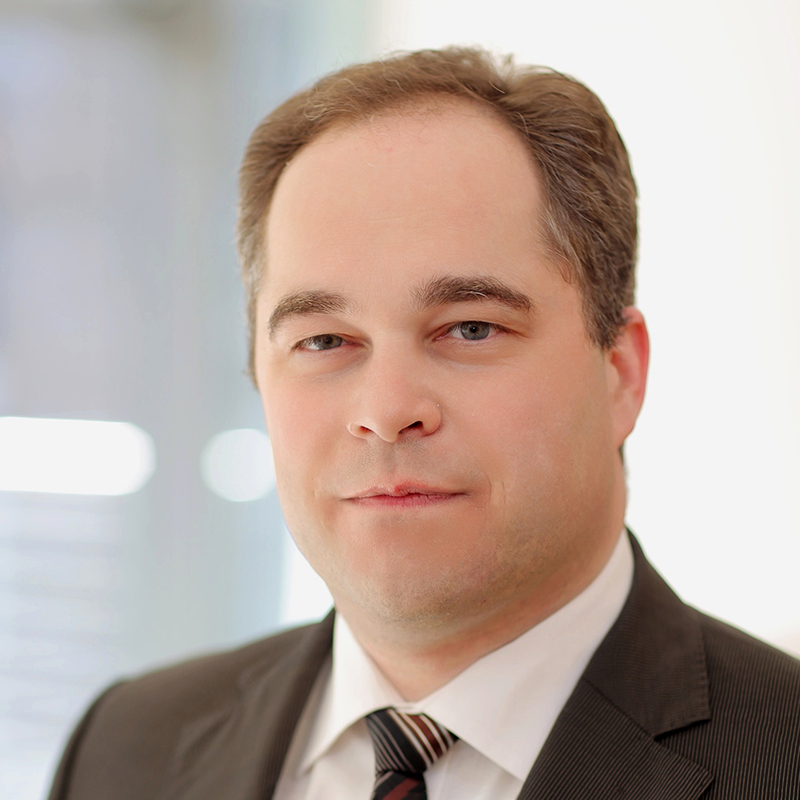Dimitri Van De Ville

Professor of Bioengineering at Ecole Polytechnique Fédérale de Lausanne (EPFL) and the University of Geneva, Switzerland
Dimitri Van De Ville received his Ph.D. degree in computer science engineering from Ghent University, Belgium, in 2002. He was a post-doctoral fellow (2002-2005) at the Ecole Polytechnique Fédérale de Lausanne (EPFL), Switzerland, before becoming responsible for the Signal Processing Unit at the University Hospital of Geneva, Switzerland, as part of the CIBM Center for Biomedical Imaging. In 2009, he received a Swiss National Science Foundation professorship and since 2015 became Associate Professor of Bioengineering at the EPFL, jointly affiliated with the University of Geneva, Switzerland. His main research interest is in computational neuroimaging to advance cognitive and clinical neurosciences. His methods toolbox includes wavelets, sparsity, deconvolution, graph signal processing. He was a recipient of the Pfizer Research Award 2012, the NARSAD Independent Investigator Award 2014, the Leenaards Foundation Award 2016, and was elected Fellow of the IEEE in 2020, IEEE SPS Distinguished Lecturer 2021-2022, and Fellow of the EURASIP in 2023.
Dr. Van De Ville serves as a Senior Editor for IEEE Signal Processing Magazine from 2021, as a Handling Editor for Neuroimage:Reports since 2020, and as an Editor for the SIAM Journal on Imaging Science from 2018. He served as a Senior Editor for the IEEE Transactions on Signal Processing from 2019 to 2023, Associate Editor for the IEEE Transactions on Image Processing from 2006 to 2009, and the IEEE Signal Processing Letters from 2004 to 2006. He was the Chair of the Bio Imaging and Signal Processing (BISP) TC of the IEEE Signal Processing Society (2012-2013) and the Founding Chair of the EURASIP Biomedical Image & Signal Analytics SAT (2016-2018).
Signals, Graphs, and Brains: An Interdisciplinary Tale
State-of-the-art neuroimaging such as magnetic resonance imaging (MRI) provides unprecedented opportunities to non-invasively measure human brain structure (anatomy) and function (physiology). To fully exploit the rich spatiotemporal structure of these data and gain insights into brain function in health and disorder, novel signal processing and modeling approaches are needed, instilled by domain knowledge from neuroscience and instrumentation. I will highlight some exciting research avenues that leverage graph signal processing by integrating a brain graph (i.e., the structural connectome determined by diffusion-weighted MRI and tractography) and graph signals (i.e., the spatial activity patterns obtained by fMRI). This methodology offers a rich repertoire of tools to quantify properties of signals and graphs relevant for brain sciences.
Michal Irani

Professor and Dean of the Faculty of Mathematics and Computer Science at the Weizmann Institute of Science, Israel
Michal Irani is a Professor at the Weizmann Institute of Science, Israel. She joined the Weizmann Institute in 1997, where she is currently the Dean of the Faculty of Mathematics and Computer-Science. Michal's research interests center around Computer-Vision, Image-Processing, Artificial-Intelligence, and Video information analysis. She also works on decoding visual information from Brain activity. Michal received a B.Sc. degree in Mathematics and Computer Science from the Hebrew University of Jerusalem, and M.Sc. and Ph.D. degrees in Computer Science from the same institution. During 1993–1996 she was a member of the Vision Technologies Laboratory at the Sarnoff Research Center (Princeton).
Michal's prizes and honors include the David Sarnoff Research Center Technical Achievement Award (1994), the Yigal Alon three-year Fellowship for Outstanding Young Scientists (1998), the Morris L. Levinson Prize in Mathematics (2003), the Maria Petrou Prize (awarded by the IAPR) for outstanding contributions to the fields of Computer Vision and Pattern Recognition (2016), the Landau Prize in Artificial Intelligence (2019), and the Rothschild Prize in Mathematics and Computer Science (2020). She received the ECCV Best Paper Award in 2000 and in 2002, and was awarded the Honorable Mention for the Marr Prize in 2001 and in 2005. In 2017 Michal received the Helmholtz Prize – the “Test of Time Award” (for the paper “Actions as space-time shapes”).
In 2023 Michal was elected member of the Israel Academy of Sciences and Humanities.
“Mind Reading” & How to Learn From Very Few Examples
Can we reconstruct natural images & videos that a person saw, directly from his/her fMRI brain recordings? This is a particularly difficult problem, given the very few “paired” training examples available (images/videos with their corresponding fMRI recordings). In this talk I will show how such image/video reconstruction (and large-scale classification) can be performed, despite having few training examples. I will further show how Deep-Learning can be performed even when there are NO prior training examples at all, by training on a single image – the test image alone. We refer to this as “Deep Internal Learning”. I will show the power of this approach to a variety of problems, including: super-resolution, image-segmentation, transparent layer separation, image-dehazing, and more.
Osvaldo Simeone

Professor of Information Engineering at King's College London
Osvaldo Simeone is a Professor of Information Engineering with the Centre for Telecommunications Research at the Department of Engineering of King's College London, where he directs the King's Communications, Learning and Information Processing lab. He received an M.Sc. degree (with honors) and a Ph.D. degree in information engineering from Politecnico di Milano, Milan, Italy, in 2001 and 2005, respectively. From 2006 to 2017, he was a faculty member of the Electrical and Computer Engineering (ECE) Department at New Jersey Institute of Technology (NJIT). His research interests include information theory, machine learning, wireless communications, neuromorphic computing, and quantum machine learning.
Dr Simeone is a co-recipient of the 2022 IEEE Communications Society Outstanding Paper Award, the 2021 IEEE Vehicular Technology Society Jack Neubauer Memorial Award, the 2019 IEEE Communication Society Best Tutorial Paper Award, the 2018 IEEE Signal Processing Best Paper Award, the 2017 JCN Best Paper Award, the 2015 IEEE Communication Society Best Tutorial Paper Award and of the Best Paper Awards of IEEE SPAWC 2007 and IEEE WRECOM 2007. He was awarded an Open Fellowship by the EPSRC in 2022 and a Consolidator grant by the European Research Council (ERC) in 2016. Prof. Simeone is the author of the textbook "Machine Learning for Engineers" published by Cambridge University Press. He is a Fellow of the IET, EPSRC, and IEEE.
How To Know When You Don’t Know: AI for Engineering and 6G
In complex engineered systems, data-driven decision making must rely on well-calibrated estimates of uncertainty to ensure safe and reliable operation. An example is given by digital twin platforms for the optimization and monitoring of 6G systems. However, conventional deep learning-based artificial intelligence (AI) solutions tend to be poorly calibrated, often failing to recognize when producing unreliable outputs. In this talk, I will argue that designing well-calibrated AI for engineering requires the development and implementation of new algorithmic frameworks that incorporate tools from statistics and information theory, along with innovative uses of emerging computing platforms that can efficiently control and represent randomness. Examples of algorithmic and methodological advances will be given from recent work by my group, encompassing Bayesian learning, conformal prediction, neuromorphic computing, and quantum machine learning.
Simon Doclo

Professor ofSignal Processing at the Dept. of Medical Physics and Acoustics and Cluster of Excellence Hearing4all, University of Oldenburg, Germany
Simon Doclo received the Ph.D. degree in applied sciences from KU Leuven, Belgium, in 2003. From 2003 to 2007 he was a Postdoctoral Fellow at the Electrical Engineering Department (KU Leuven) and the Cognitive Systems Laboratory (McMaster University, Canada). From 2007 to 2009 he was a Principal Scientist with NXP Semiconductors in Belgium. Since 2009 he is a full professor at the University of Oldenburg, Germany, and scientific advisor for the Fraunhofer Institute for Digital Media Technology IDMT. His research activities center around signal processing for acoustical and biomedical applications, more specifically microphone array processing, speech enhancement, active noise control, acoustic sensor networks and hearing aid processing.
Prof. Doclo received several awards, among which the EURASIP Signal Processing Best Paper Award in 2003, the IEEE Signal Processing Society2008 Best Paper Award and the best paper award of the VDE Information Technology Society in 2019. He was a member of the IEEE Signal Processing Society Technical Committee on Audio and Acoustic Signal Processing and the EURASIP Technical Area Committee onAcoustic, Speech and Music Signal Processing. Prof. Doclo was Technical Program Chair of the IEEE Workshop on Applications of Signal Processing to Audio and Acoustics (WASPAA) in 2013 and the International Workshop on Acoustic Signal Enhancement (IWAENC) in 2022. In addition, he serves as Senior Area Editor for IEEE/ACM Transactions on Audio, Speech and Language Processing and was associate editor for IEEE/ACM Transactions on Audio, Speech and Language Processing and EURASIP Journal on Advances in Signal Processing.
Model-Based and Learning-Based Approaches for Speech Enhancement and Source Localisation
In many everyday speech communication applications, such as conferencing systems and assistive listening devices, speech quality and speech understanding may be severely degraded by background noise, competing speakers and reverberation. For these applications speech enhancement algorithms are required that are on-line capable and perform well in dynamic acoustic scenarios. In this talk, I will present some recent advances in model-based and deep learning-based approaches for speech enhancement and source localisation and more in particular focus on hybrid approaches that combine advantages from traditional signal processing and deep learning. In addition, I will highlight the potential of using spatially distributed microphones in acoustic sensor networks for speech communication applications.